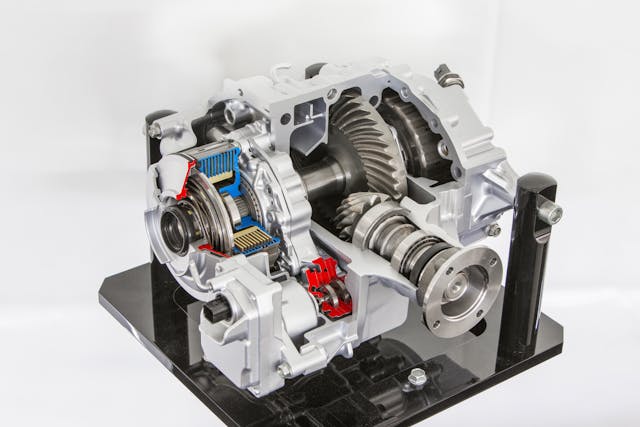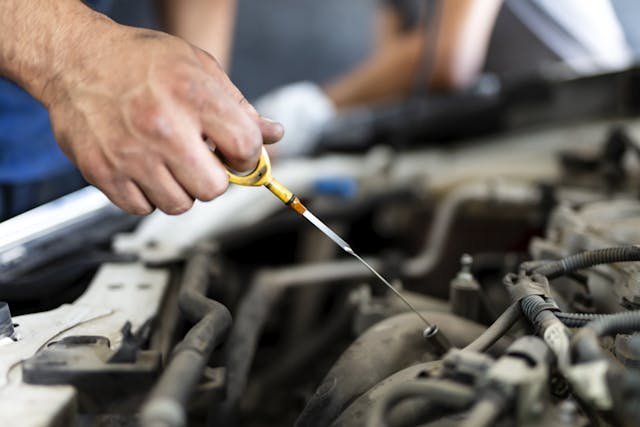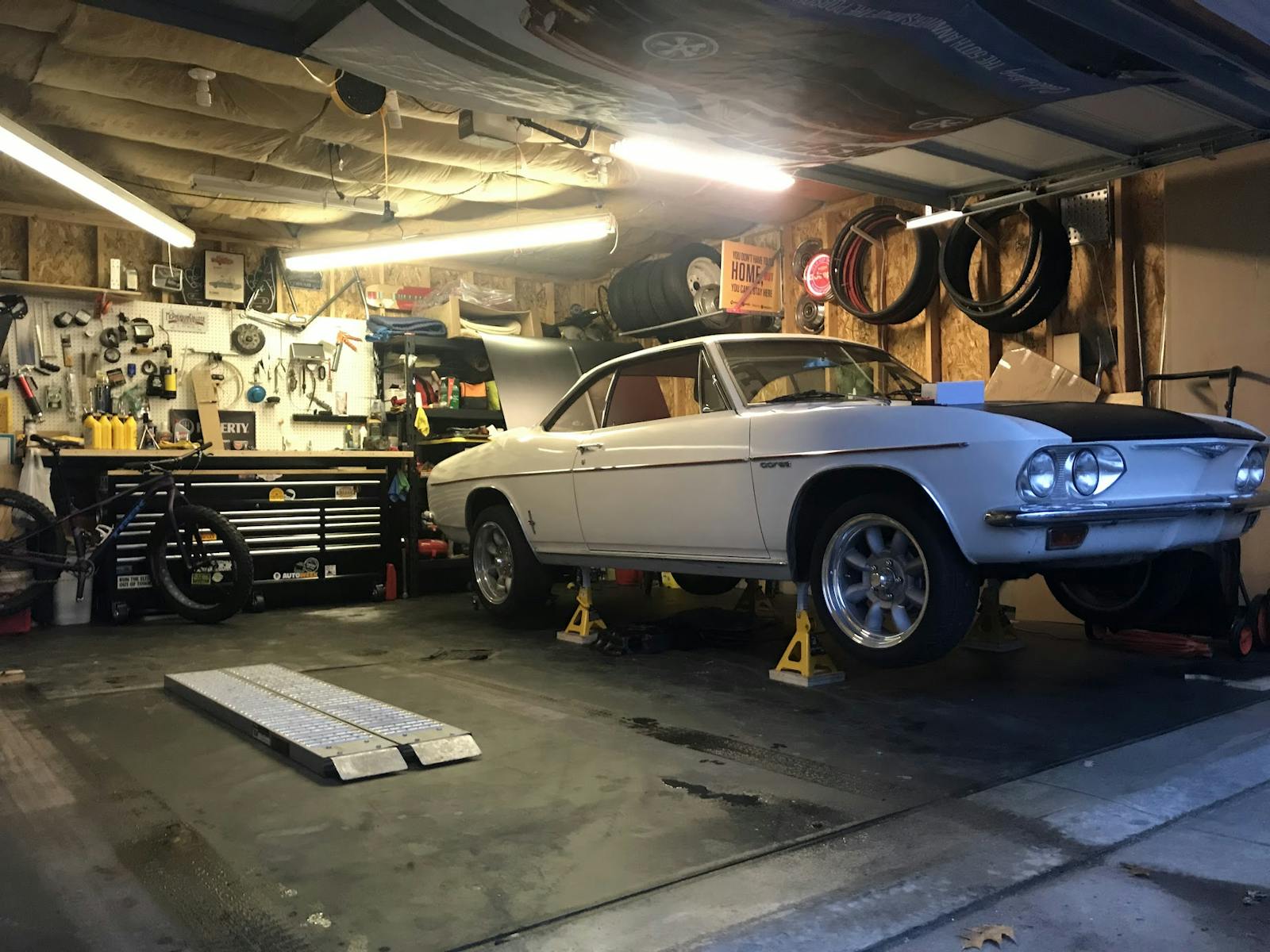Media | Articles
Are “Lifetime” Fluids as Scary as They Seem?
The hands of the clock only move forward, and that means many cars that were once merely daily drivers are beginning to transition into the liminal space between used car lots and pampered garages. These cars come with different challenges and quirks compared to the cars of previous generations. One that you have likely heard of is “lifetime fluids.” Are these a good thing, a bad thing, or somewhere in between?
The root of the confusion often traces to the definition of “lifetime.” Whose lifetime, what lifetime, is being referred to? Often the lifetime designation is given to a fluid placed into a sealed system, leaving no opportunity for service without disassembly or damage. As cars have progressed and evolved over the years, many parts, pieces, and service techniques have faded from pages of service manuals. When was the last time a new car needed to go back to the service department for a valve adjustment?
But not all such advancement has been so widely accepted. Here are three examples of assemblies that may state the fluid inside is “lifetime,” along with why or why not that may be an acceptable solution to the problem.
Transmissions

Transmission fluid takes a beating, but compared to engine, oil transmission fluid lives a pampered life. Transmissions get sealed up better than engines and have fewer entry points for dirt and debris, along with not having the byproducts of combustion to muck up the oil. There are wear items in transmissions sure, but modern materials and manufacturing processes have reduced the amount of debris built into new units while also preventing items like gears or clutches from shedding material that would foul the oil.
Transfer Cases and Differentials

Most transfer cases and differentials are relatively simple power-transfer arrangements involving gears or chains. Similar to transmissions, material science enables these parts to be more durable than they once were. Additionally, the additive packages in modern oils make them last longer than ever, since the oil tolerates and protects from heat and shear better than it used to do. Finally, these units are just sealed better than they used to be, which offers greater prevention of contamination of their oils.
Marketplace
Buy and sell classics with confidence
So What Does This Really Boil Down To?
The definition of “lifetime.” People like me, which is likely you as well, see vehicles as something more than a means of transportation. The reality is that no car lasts forever when used as designed but not maintained. Maintenance schedules have evolved significantly, but so have the needs and life expectancy of vehicles. It is very possible for a modern car to outlast an older one when used and serviced similarly.
In a world where all major car companies are shareholder-driven and therefore the line on the stock chart must progress vertically up the Y axis just as it trudges along the X axis, machine work and extra parts that are required to be put in place during manufacturing are the pennies that make dollars, eroding profit margins. Considering the majority of vehicle owners view their vehicle as an appliance, the exchange of serviceability and ability to keep a vehicle running indefinitely is not a priority.

Is that fluid good for your lifetime? Probably not. It’s one thing for manufacturers to say that some fluids are “lifetime,” but it’s another to remove the ability for owners to easily check the levels and condition of those fluids. It’s good to know what’s going on in your car. That said, there are certainly unwitting owners out there who there who might do more harm than good by topping off with incorrect fluids, so it’s clear that carmakers know that some people need to be protected from themselves.
We as car faithful, however, will likely figure out workarounds to service vehicles and assemblies that need work, just as we have for over a century. And as we charge further into the 21st century, it’s also likely that cars will be more made reliable and dependable from the factory, without the need to obsess over each fluid.







I just changed the lifetime transmission fluid on my wife’s Lexus. I don’t believe in lifetime on a 12 year old car with 105k miles.
I think that fluids in sealed systems can last a very long time. Many times I drain coolant from 20 year old motorcycles that look and tests as good as new so I always save it for my Case tractor that has no reservoir system on it. What is very frustrating is when auto makers tout their low maintenance systems and produce designs that reduce serviceability. Case in point, my Ford F150 has no drain plug for the rear final drive oil which causes no problem as the oil hardly ever needs to be replaced but this complicates a rear axle seal replacement.
I figure you can be wrong and change fluids too soon – you’re out a few bucks. Or – you can change too late and it is now a very big deal. How many gallons of ATF would it take to equal the price of a transmission?
To add to the confusion, often, the vehicle maker and the component maker disagree. For example, BMW specifies that the fluid in the ZF 5HP19 transmission is Lifetime, when ZF says change it every 50-70K miles. I go by what the transmission maker says. Also, for automatic transmissions, dropping the pan means you can change the filter and clean the magnets. Saturated magnets no longer keep ferrous material away from vital parts. Seems kind of important to me.
There is nothing lifetime about a GM 6 speed auto transmission. Had to have the 19 Tahoe trans rebuilt at 112,000.
Folks that lack of checking/testing fluids where possible are the same people who think you can leave the drivers seat when the cruise control is set.
Sounds like this would be a great subject for a detailed maintenance article in the Hagerty magazine.
Anything liquid or semi liquid in any mechanical devices have an expiration date. Compared to downtime inconvenience and replacement expenses, fluids will always be cheaper no matter what they cost
I would love to hear feedback regarding ‘Evans’ brand coolant. Is it a gimmick or can it be trusted to last for decades? I’d love to hear what the readers of this Hagerty family have to say.
Sometimes you run into problems like the one Ford has been having with the GM/Ford sealed transmissions. I have a 2014 Escape with one. Replaced the transmission at about 80K miles, and it cost just under the book value of the car a couple years ago (if it didn’t need a transmission). We decided to spend the money and drive the car a few more years to get it back (car was paid for). the only other choice was to get maybe 1/4 value for a broken car. The problem was mainly me, not the trans, and I suspect that’s the same with a lot of people who are in a class action suit against Ford. I declined to join it. The trans fluid is supposed to be changed at either 40 or 50K miles. It’s my first sealed transmission car! I didn’t even realize it was sealed — I thought the oil change guys were checking and topping it off if needed. Only when it quit did I do a little research and find out it was sealed and the fluid should have been changed — and there is no easy way to check level or add fluid. Has to be up on a rack to check, fill port is hard to get to and not obvious on top. I bought it as a two year old used car from Car Max. If bought from a Ford dealer they should be pointing out the trans service since it’s different from what most are used to, but they don’t.
Frank S, you are to be commended for not getting on the lawsuit bandwagon. May you enjoy your Ford reliably for many years to come.
All fluids oils etc wear out absorb water dirt carbon etc lifetime is for lazy people with too much money to spend on net stuff
Lifetime is for people with too much money to spend on new stuff also makes car dealers repair shops banks and tow company’s rich support all of them and never change anything.
I have a 2013 Lincoln MKX and a 2017 Explorer. I changed all the fluids at 100,000 km (60,000 mi.). The internet is littered with videos of the PTU’s (transfer case) failing, especially the MKX. The PTU has the catalytic converter on one side, exhaust on another, engine and trans on the 3rd side. Oil was black. After 3 changes in a month, it started looking ‘less black’. Also, it was conventional oil, now it has synthetic from Ford. I want lifetime reliability, not lifetime of the part without changes. You’ll never convince me that ‘lifetime’ fluids will last 15-20 years. I believe I dodged a bullet on the PTU.
Kyle, thanx for another good article. My position regarding vehicle life with reliability is change the fluids. This is an ‘umbrella’ comment, covering most but not necessarily all, since it may not apply for everyone and their vehicle. How often to change fluids is yet another conversation, let alone what brands/types/grades to use.
To be blunt, one shouldn’t think their personal experience is ‘correct’ and the standard for everyone else and their vehicles. Geographic location & road condition, the make and model, how the vehicle is operated/driven, the quality of the person performing the maintenance & repairs, etc., can make for complete opposite results from one owner to the next. And, opinion vs fact can be very very different. Even with my automotive background, having read comments in articles like these for as long as I have, I’ve gained a lot of good information. I’ve also read a lot that can be quite damaging. My 2 cents worth: if you don’t understand vehicle maintenance/repairs, do your best in sourcing a good reputable shop that will give sound advice and repairs. They’re out there!